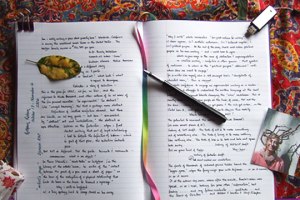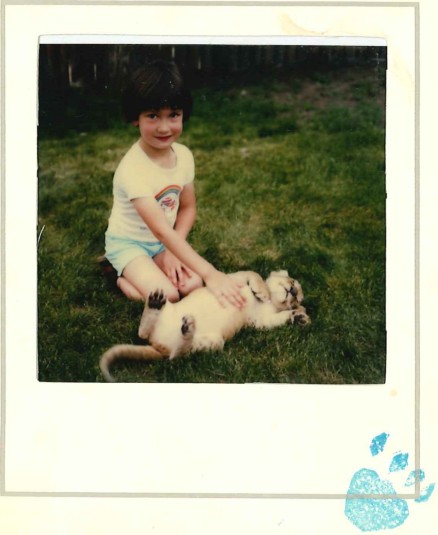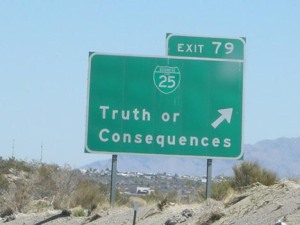I brought my saxophone when I moved to Bellingham and, after a thirteen-year hiatus, I’ve spent some time playing it this quarter and last. I have also visited a lot of memories of family and friends; many of the memories are tied up with playing music.
While writing about memory this quarter, I have tried to come up with a sufficient explanation for my unwillingness to write about my mom, especially when it seems so easy to write about my dad. I have concluded that I have not written about her because she was fragile in my mind for such a long time. Fragile not in any sexist way, mind you. My mom graduated from college and had a successful career as a phlebotomist while raising five children. She reads more than most people I know. She is an incredible grandmother. She is a marathon runner and, pushing seventy years old, she can still outrun or outhike me any day. She is currently serving her God as a Christian missionary in Nairobi, Kenya.
My mom was fragile in my mind because she has lived so long with the weight of a sister who died young in a car accident, because she has spent countless hours worrying about her alcoholic brother. Fragile because she spent so much of her adult life worrying about her children and how they would turn out. Fragile because her mother passed away in 2009, and her father passed away exactly one year later, and the blow set her off kilter accordingly. Fragile because she periodically boards the slowly accelerating train of depression and can’t get off again until it slows to a jumping-off speed. Fragile from so many years of jumping, tucking, rolling, and getting up once again to walk off the pain.
This post is a roundabout exploration of edited memory and life and sequences of events and music and my mother and the way that mental images replay in my head as I listen to “Giant Steps” or as I pull out my saxophone and slide a reed into my mouth while flipping through sheet music annotated with the scribbly hand of my instructor, Darrell Matthews. To some degree, playing the saxophone is like riding a really expensive, complicated bike: you never forget, at least not the fundamentals.
* * * * *
During the summer between my third and fourth grade school years, my family drove in our big blue van from Ogden, Utah, to Green Bay, Wisconsin, to visit my dad’s brother and his family. I came down with the chicken pox the day we left home. When we stopped to view Mount Rushmore, fellow tourists gaped at me like I had the plague. I was uneasy and self-conscious staring up at those dead presidents. When we stopped at Wall Drug, South Dakota (“You’re almost there!” . . . “Four more exits!”), my mom hurried off to find a bottle of calamine lotion to ease my itchy suffering. Turns out “Wall Drug” isn’t just a clever name – there is a drug store hidden in that ostentatious, yet oh-so-charming tourist trap.
Our visit to Green Bay is represented by a handful of ten-second clips, organized in my mental repository under the following tabs: getting sick from too much Jolly Good Grape Soda; standing on the shore of Lake Michigan while mom wraps me up from behind in the hoodie I refused to wear when we left the van; watching dad and Uncle Bob get hassled by police for buying scalped tickets at a Chicago Cubs game; tagging along with my older siblings and cousins; listening to mind-numbing adult conversation when my siblings and cousins would not have me anymore; watching my cousins Erin and Dan show off their saxophone skills.
When we got back to Ogden, mom asked me if I would like to play the saxophone like Dan and Erin. I said, “sure.” I didn’t anticipate dad coming home one evening with a second-hand Selmer E flat alto saxophone and an explanation that he and mom were in the arranging after-school lessons at the junior high school.
* * * * *
I began learning saxophone from a man named Darrell Matthews when I entered the fifth grade. He wasn’t faculty at the junior high, but he was friends with the band teacher, Ms. Tams, and he taught there after hours. I took lessons once a week for just over two years. Mr. Matthews and I sat in the empty band room, playing from sheet music set on dinged, leaning music stands with a backdrop of orange-carpeted walls and pictures of the greats: Chopin, Mozart, J.S. Bach, Debussy, and so on.
During the hot, dry Utah summers after fifth and sixth grade, my mom drove me to South Ogden for lessons. After scratching out a cheque and sending me up to the door, my mom would drive around the corner to visit her sister Margie. Mr. Matthew’s and I played jazz in the coolness of his basement, in front of a large screen door that opened up onto his back lawn, sending the staccato sound out into the hot stillness of the neighborhood.
Doo-deee-dah-doo-doo–dah-doot-doot-doot-daaah-these are a few of my favorite things.
When I left elementary school in the sixth grade, Ms. Tams arranged for me to enter directly into the symphonic band, rather than sitting through a needless year of beginner band. This was a blessing and a curse.
As a newly-arrived second-chair seventh grader, I had no friends in the symphonic band. All my friends were in beginner band or orchestra. The third chair saxophonist, Matt, didn’t like me because I superseded him without experiencing the rite of passage that was beginner band. The first chair, Kasey, didn’t like me because she didn’t like anybody. A more feminine version of Kenny G, complete with jheri curl, she had a mouth full of braces and a propensity for educating me on the social strata of the band.
“The flutes are a clique. They’re all stuck up. The percussionists are a clique. They’re all in punk bands and think the symphonic is for nerds. The only genuine nerds are the clarinets. The bassoonist doesn’t want to be here. He only plays because his parents make him. The brass are all jackasses, except the french horns. They’re just a different variation of the flutes.”
“Oh?”
“Yeah. When we tour the elementaries and go to comp at Utah State, you can stick by me, if you want.”
She was an outcast herself. I wonder where she ended up.
My first real jr. high girlfriend was a flautist named Tara. With perfect flautist posture, she made eyes at me across a crescent of nascent musicians, across the podium where little Ms. Tams jabbed and slashed her baton through the air. When I glimpsed Tara’s flautist eyes over the top of my stand, I squirmed and fought off the humiliating reed squeak every adolescent saxophone player knows too well. All the while little Ms. Tams kept time and articulated with her puckered, mustachioed mouth.
Pah-pahpah-paah-pahpah-paaah–pahpah-paah.
When half the school trooped down the hill to loiter at Smith’s on an early-out afternoon, Tara and I walked together. Passing the horse corral kitty-corner to the elementary school, several of the boys, including myself, created a human chain by linking hands in front of the electric fence. The outermost two stepped forward, grasping the wire simultaneously with their free hands. The jolt passed through every one of us, a slight Bzzp!! running from palm to shoulder to heart to shoulder to palm and so on. We laughed and laughed, but refused to do it again.
Outside the cemetery, Tara interlaced her slender flautist fingers with my awkward saxophonist fingers, and pressed her body against mine when the sky began to drizzle. When Tara tilted her face upward, hoping for a firsthand inspection of my embouchure, I deflected with a sudden and overzealous interest in my friends’ conversation.
* * * * *
I had a unique bonding experience with my mom that year. After hours of practicing together in our front room, she accompanied me on the piano at the North Ogden Jr. High Christmas Concert. Kemp’s Jig. A horrible song Darrell Matthews convinced me to play.
Dee-de-deedee-dee-de-deedee-doot-doot-dootle-dootle-dooooh.
Though I had kept it a secret at home, it was not hard in the junior high gymnasium for my mom to realize that Tara was my girlfriend, having viewed the way that Tara gravitated toward me and how she sat next to me between our respective numbers at that Christmas concert. My mom’s awareness was a problem only because she had told me over and over again that I was not supposed to have a girlfriend until I was sixteen or older. I ended up pushing away Tara because I could not live with the guilt of disobeying my mom.
* * * * *
Incidentally, this was happening at the same time that I began pushing away the symphonic band and the E flat alto. It happened at the same time that I began pushing away my parents and my siblings. Teenage angst was setting in, naturally, and I replaced my family with friends. I replaced Darrell Matthews with Paul Gibby, a rock ‘n’ roll guitar instructor. I replaced Coltrane with Bad Religion and Social Distortion. Band wasn’t cool or rewarding anymore, and the saxophone found its way to the back of my closet. I played a lot of Contra and Skate or Die on Nintendo and drank a lot of Mountain Dew during that time.
Life goes by so fast / ya only wanna do whatcha think is right / close your eyes and it’s past / the story of your life.
Incidentally, this was happening when I learned from an obituary that Darrell Matthews died. There he was in 2”x1” black-and-white, with his big fob of hair, his smokey-tinted eyeglasses, and his sly saxophonist half smile. Gold chain, polyester shirt.
When I got to high school, a couple of salient truths came to light. Incidentally, Darrell Matthews died only because he killed himself. Mom learned this through her sister Margie who lived around the block from him.
He was the first person I knew personally who committed suicide.
Incidentally, mom’s sister Dianna did not die in a car accident. Not exactly. She died when she learned that her husband was cheating on her. When he was unapologetic. When she dropped off the kids at school, drove home, closed the garage door, and let the motor run while she asphyxiated on carbon monoxide. That was the “car accident.” When my grandpa–a good ol’ boy from Kentucky–left the house with the intention of murdering Dianna’s cheating husband, grandma, mom, and the sisters had to physically restrain him as he stormed toward his orange-and-white Chevrolet pick-up truck.
I have spent recent years trying to grow closer to my parents–trying to make up for all the years I spent pushing them away and taking for granted who they are and what they have done for me. I realize now that mom did not tell me the truth about Dianna or Darrell because she was protecting me. She probably did not want me to know that suicide was an option in life. Maybe she thought I was fragile.
I see now that my mom’s fragility is, in reality, not fragility. My mom is a rock, regardless of which truths she chooses to obscure. Perhaps the fact is that I did not write about my mom because I believed subconsciously that obscuring her truths through my own silence would protect her nonexistent fragility in some way.
-Lee Chancey Olsen
___________________________________________
Giant Steps: http://www.youtube.com/watch?v=30FTr6G53VU
My Favorite Things: http://www.youtube.com/watch?v=0I6xkVRWzCY
Story of My Life: http://www.youtube.com/watch?v=oh8zcbC_Dcw




